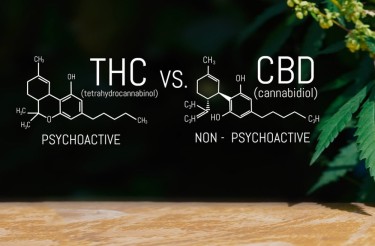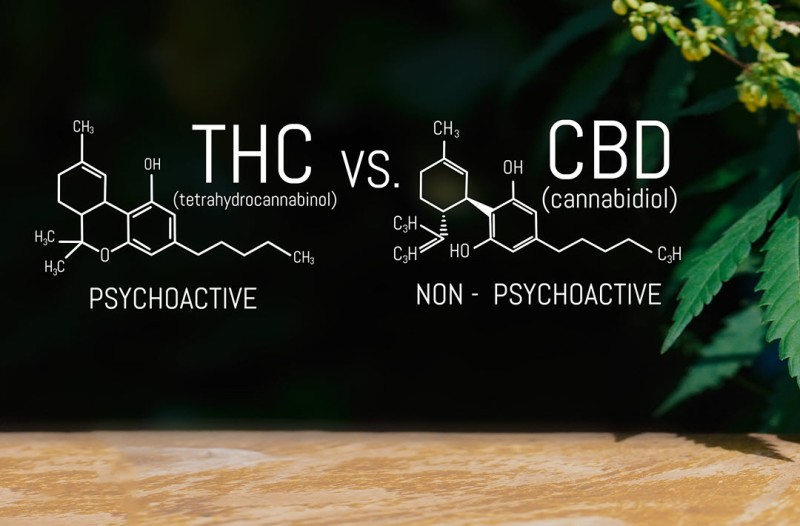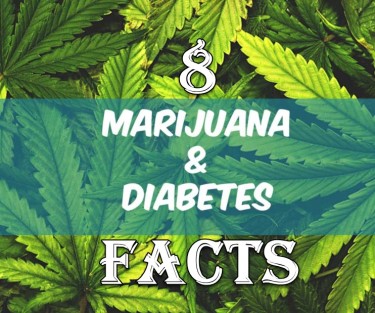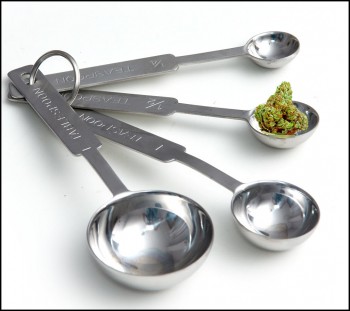
New Study Says THC and CBD Combo Effective For Diabetes
With almost 40 million Americans living with diabetes, it’s one of the most common ailments afflicting society worldwide.
Considering the traditional western diet is loaded with sugars – including hidden sugars, it’s not surprising that millions of people have diabetes. Many more in low and middle-income nations have this condition, and according to the World Health Organization, cases have only continued to rise over the last few years.
There are many different treatment options available for various cases of diabetes. They oftentimes involve injecting insulin and checking for blood sugar frequently. However, they are not cheap and oftentimes require lifelong management once you have been diagnosed. Changing your diet and living a healthy lifestyle is the first, most important change you can make.
Fortunately, there is a growing body of studies pointing to the benefits of cannabis for diabetics.
In one of the latest studies, researchers from Iran analyzed the impact of a proprietary formula containing plant-based CBD and THC in a 10:1 ratio, which was created by Yas Daru, a pharmaceutical firm in Tehran. It was given to 50 diabetic patients diagnosed with type 2 diabetes sublingually to help keep glucose as well as cholesterol levels in check. The study participants administered the sublingual spray twice a day for 8 weeks.
When the researchers compared the results to those given placebo, they found that the patients who were given the CBD:THC ratio had a “statistically significant decline in total cholesterol, triglycerides, LDL-C, FBS [fasting blood glucose levels], Hb [hemoglobin] A1C, and insulin secretion,” they wrote. “In the present study, we demonstrated that sublingual administration of a CBD/THC spray… twice daily through an eight-week treatment period could effectively improve the patient’s lipid profile and glucose tolerance… Based on these observations, the combination of CBD/THC regimen could be a new therapeutic regimen for controlling the lipid profile and glycemic state of DM [type 2 diabetic] patients,” they concluded.
Does Cannabis Really Reduce The Incidence Of Diabetes? Studies Say Yes
In January 2022, the results of another study on cannabis and diabetes were released. Investigators from the Texas A&M University sought out to study the association between diabetes and marijuana consumption in a sample of more than 15,000 adults.
It was surprising to find that the females in the sample, who were also consuming cannabis on a frequent basis, had less than 50% of a risk to develop diabetes compared to the non-using consumers in the group. The researchers also found that there were no differences noticed among the women who were only occasional cannabis users. Interestingly, the researchers didn’t find a similar relationship among the males in the cohort.
“Further studies are needed to explore the sex-based heterogeneity – and individual and contextual factors responsible – in the association between cannabis use and diabetes mellitus,” the researchers concluded.
There have also been other studies suggesting that cannabis helps individuals with diabetes in other ways, such as by decreasing inflammation, reducing blood pressure, treating neuropathic pain, and much more. And despite the fact that cannabis induces the munchies, people who consume cannabis have been shown to be leaner and have a lower body mass index.
For one, an older study analyzing the association between cannabis consumption and waist size among 4,657 individuals, found there was a correlation indeed.
The researchers discovered that people who consumed cannabis at the time of the study had a waistline 1.5 inches smaller than those who didn’t consume pot.
How Does Cannabis Work To Prevent And Treat Diabetes?
The cannabinoid profile of the cannabis plant all contain beneficial and therapeutic effects. It works together with the human endocannabinoid system to treat a myriad of conditions, including insulin resistance. Additionally, the cannabinoid receptors in the endocannabinoid system help to manage several important bodily functions.
The endocannabinoid system contains a vast network of CB1 and CB2 receptors. These receptors act on THC and CBD, which are found in the cannabis plant, to help the body work efficiently. While there is still a lot to learn about the way these receptors work, it is clear that the endocannabinoid system plays a significant role in diabetes and other conditions that may occur as a result of diabetes complications. This is why it’s become increasingly important to learn about how cannabis can help treat, manage, and prevent diabetes.
In a review of studies, researchers found that there was a link indeed between cannabinoid receptors that control the body’s inflammatory response and gut functions. Using animal models, researchers established that endocannabinoids work to reinforce regulatory pathways. Dr. Pramod K. Srivastava, PhD, MD, Director of the Center for Immunotherapy of Cancer and Infectious Diseases at the University of Connecticut and a professor of immunology and study co-author, explains that when we consume food, this food is seen as foreign to our bodies. But the human gut needs to absorb nutrients.
“We show in this research that if you have mice with a type 2 diabetes-like condition, and you feed them anandamide, this seems to cure the disease. So, that’s a clear point of interest for endocrinologists,” he explains. “Greater understanding of the endocannabinoid system may lead to therapies for T2D, an autoimmune condition of gut inflammation in children.”
Conclusion
Given the growing body of research that continues to strengthen the link between cannabis use and reduced prevalence of diabetes, it’s important to conduct more thorough research into the topic. Integrating cannabis into your lifestyle may be the key to reducing blood glucose, especially if you have a risk of developing this condition. It may also be the lifesaving component for millions of people around the world living with diabetes.







